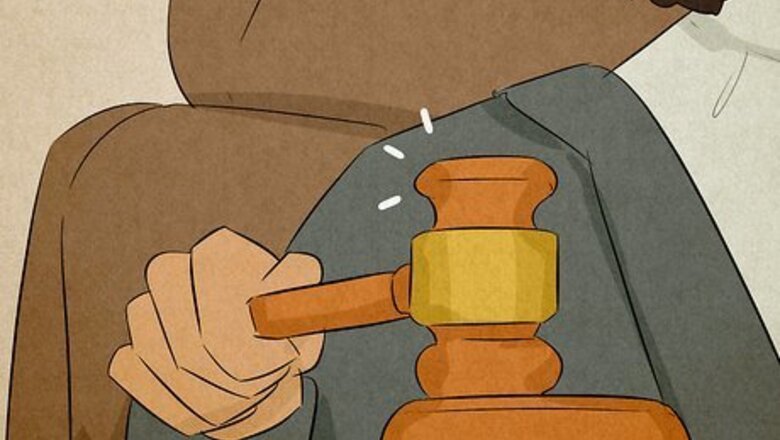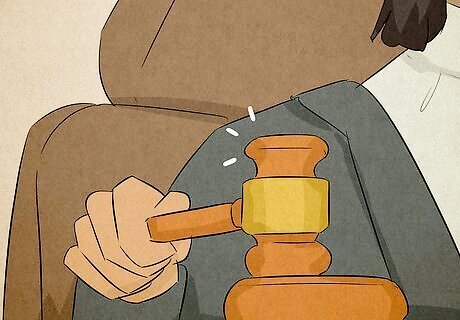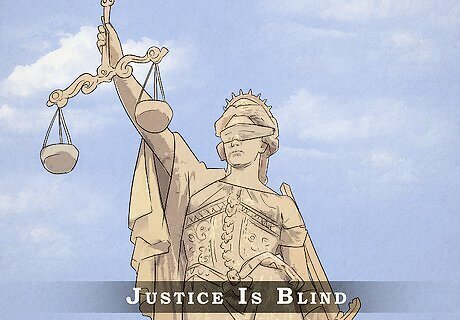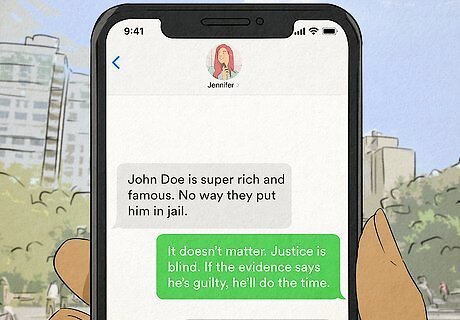
views
What does “justice is blind” mean?

“Justice is blind” means the legal system is objective and unbiased. This saying is usually used when talking about a legal court. It refers to the way judges, juries, and law enforcement are supposed to fairly make decisions based only on the information presented to them, rather than based on personal experiences, or who they like most.
Origin of “Justice is Blind”

The phrase “justice is blind” alludes to Lady Justice. Wearing a blindfold, and often shown in courthouse paintings or as a statue, Lady Justice is a symbol of the legal system. She’s based on the Greek goddess Themis and the Roman goddess Justitia who are known for their good judgment and righteousness, respectively. She acts as a reminder that the courts are supposed to protect the rights of the people without being influenced by outside factors.
How to Use “Justice is Blind”

Use “justice is blind” in a legal context. The most common situation you can use this phrase in is when you’re talking about court hearings, or legal proceedings. The legal system seeks to be impartial, but some people think there are ways to evade an honest trial. Use “justice is blind" as a reminder that lawyers, juries, and judges seek justice by looking only at the evidence. Your friend: “John Doe is super rich and famous. No way they put him in jail.” You: “It doesn’t matter. Justice is blind. If the evidence says he’s guilty, he’ll do the time.”

Use “justice is blind” to hold someone accountable. You can use this phrase outside of a legal setting as well. If you know someone who is unafraid of consequences in general because they think their friends, money, or who they are will get them out of it, you can say “justice is blind” to remind them that doing the wrong thing has consequences no matter what. Your friend: “My dad’s friends with the sheriff, so it doesn’t matter that I shoplifted the t-shirt.” You: “Justice is blind. The sheriff isn’t going to care that she knows your dad when she finds out you stole something.”

Use “justice is blind” sarcastically. You can use this phrase sarcastically to comment on the tolerance or ignorance of abuse of the law by the legal system. If you see someone treated unfairly by the judicial system because of their personal identity or bias of any kind, you might say “Oh, yes. Justice is so blind.”
















Comments
0 comment